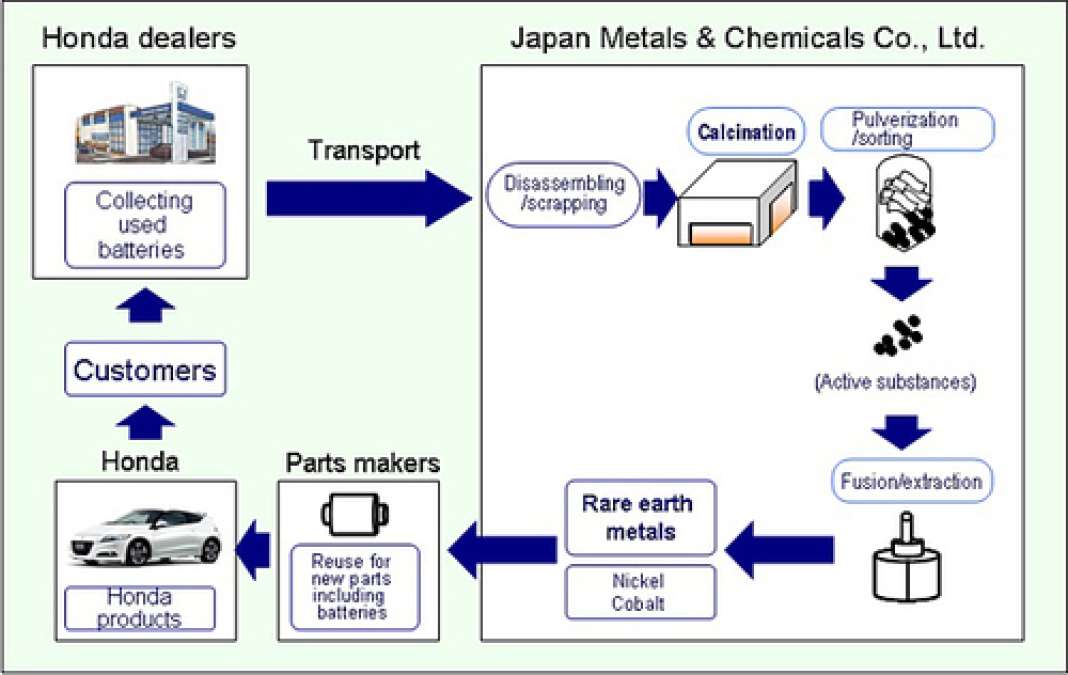One of the geopolitical power concerns in developing electric cars is the rare earth metals. China, through being the low cost provider of rare earth metals, has essentially taken over the market. China's dominance and other issues have made many worry about the wisdom of trading a dependence on foreign oil controlled by unstable-not-quite-friendly governments for a dependence on rare earth metals controlled by a not-quite-friendly government. Honda has announced a recycling process for rare earth metals the company says produces materials with purity almost as high as newly-mined metals. If put into production this could help reduce the supply concerns.
Rare earth metals have this name because of the relative scarcity of mineral deposits with a high enough concentration to be worth mining. While rare earth minerals mines exist outside of China, that country dominates the market. Some rare earth metals mines are re-opening outside of China, and new recycling technologies are being developed. Improved recycling techniques could mean an important source of rare earth metals could be worn out (or out-of-fashion) electronics gizmos that would no longer be sent to the landfills. Hybrid and electric cars use rare earth metals in some kinds of high powered motors, in some kinds of batteries, and in the electronics.
What Honda and Japan Metals & Chemicals announced is the worlds first mass-production recycling process to extract rare earth metals from used Honda parts. Honda stresses this is not an experimental process, but a mass-production process. The initial goal is to extract rare earth metals from used Nickel-Metal Hydride batteries, the sort which are used in hybrid cars. The companies had been recycling these batteries with a heat treatment that produced a lower grade material. The new process, according to the companies, produces materials with high purity, and extracts 80% or more of the rare earth metals used in nickel-metal hydride batteries.
The rare earth metals extracted from old batteries can then be used to make more batteries. Honda plans to expand use of the process to other components in Honda's product line.
This is the "Reduce, Reuse, Recycle" pattern as applied to hybrid cars. Just as recycling an aluminum soda can allows that aluminum to be used to make other soda cans, so too does recycling of objects containing rare earth metals allow the metals to be used to make other objects containing rare earth metals.
The picture provided by Honda shows batteries being collected by Honda dealerships, but presumably they could also be collected from scrapyards. The used batteries are trucked to a recycling plant operated by Japan Metals & Chemicals, put through various processes, the result of which is Nickel-Cobalt and various rare earth metals.
If there is no recycling ever of rare earth metals, eventually the mines will run dry and we'll no longer be able to enjoy all the benefits these materials bring us. These benefits are not only the components in electric cars, but nearly every kind of electrical gizmo contains rare earth metals. The plan Honda has announced is only one step in what must be the development of a whole range of technologies and businesses to divert used gizmos from the landfill waste stream, take them to recycling factories and extract the valuable materials.





